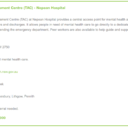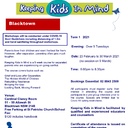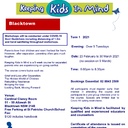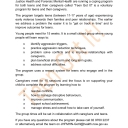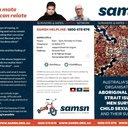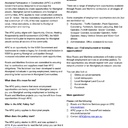In the past week, I’ve read several studies that are scary to me… it’s the scary truth about what’s hurting our kids. We all know that what our kids hear becomes their inner voice, but it’s hard to control what they hear from others, isn’t it?

CNN recently interviewed Dr. Jean Twenge, author of iGen and her interview worried me – because I saw the truth that I would be facing in just a few short years. Dr. Twenge started doing research 25 years ago on generational differences, but when 2011 -2012 hit, she saw something that would scare her to the core. This is the year when those having iPhones went over the 50% mark.
The results of that should scare all of us.
•This was the year that more kids started to say that they felt “sad, hopeless, useless… that they couldn’t do anything right (depression).”
•They felt left-out and lonely.
•There is a 50% increase in a clinical level depression between 2011-2015.
•A substantial increase in suicide rate.Before I give you any more, I want you to look at these graphs and look at how the information correlates to the iPhones being released.
They aren’t hanging out with friends nearly as much.
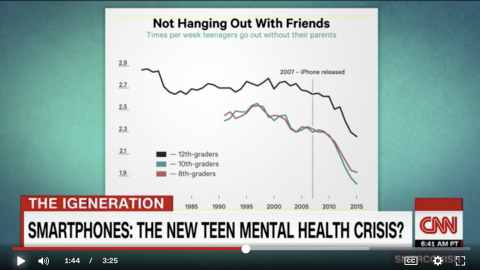
They aren’t dating as much.
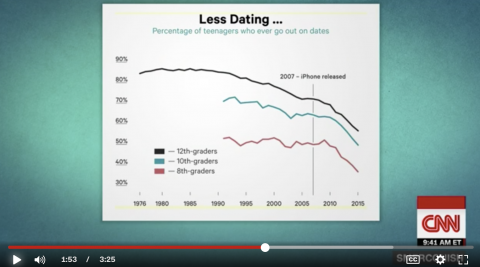
More likely to feel lonely.

They are getting less sleep.
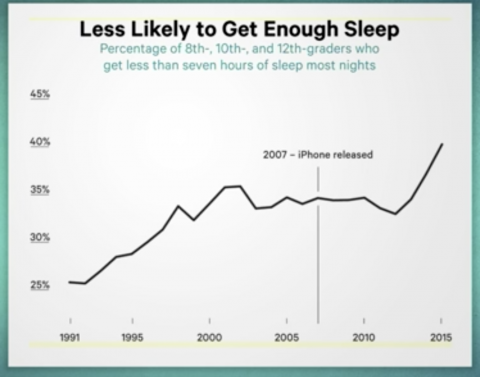
She goes on to say that we are in the worst mental health crisis in decades.
Why is this happening? Why are kids more depressed because of electronics?
Think about when we were in school – we didn’t know every time that there was a get-together that we weren’t invited to and we didn’t see pictures of each outing, game, or party.
We didn’t care what we looked like when we were hanging out with friends, because we were the only ones that were there- I can remember sitting around with my best friends in our sweatpants, just laughing – I didn’t wear makeup or care if I had my hair fixed just right, because the worry of a phone or camera wasn’t there.
Think about bullies. When we left the school, we left them. If teasing happened, it didn’t happen at home. It didn’t happen so publicly. Everyone couldn’t see it or know what they were teasing other kids about since they weren’t there. Now, it’s all public knowledge, and anyone can join in or watch. It’s horrifying.
I can’t imagine being a tween or teenager now. Although- as the parents of children, we have to believe it, because we have to help our children navigate it.

According to Victoria Prooday, Occupational Therapist & writer at YourOT.com, “There is a silent tragedy developing right now, in our homes, and it concerns our most precious jewels – our children… Researchers have been releasing alarming statistics on a sharp and steady increase in kids’ mental illness, which is now reaching epidemic proportions:
• 1 in 5 children has mental health problems
• 43% increase in ADHD
• 37% increase in teen depression
• 200% increase in suicide rate in kids 10-14 years old
She goes on to say that “Today’s children are being deprived of the fundamentals of a healthy childhood:
•Emotionally available parents
•Clearly defined limits and guidance
•Responsibilities
•Balanced nutrition and adequate sleep
•Movement and outdoors
•Creative play, social interaction, opportunities for unstructured times and boredom
Instead, children are being served with:
•Digitally distracted parents
•Indulgent parents who let kids “Rule the world”
•Sense of entitlement rather than responsibility
•Inadequate sleep and unbalanced nutrition
•Sedentary indoor lifestyle
•Endless stimulation, technological babysitters, instant gratification, and absence of dull moments”
•How true… and how sad.
You can read the rest of her story at yourot.com
I couldn’t agree more. According to TIME.com, “Despite the rise in teen depression, the study, which analysed data from the National Surveys on Drug Use and Health, reported that there wasn’t a corresponding increase in mental health treatment for adolescents and young adults. Researchers said this is an indication that there is a growing number of young people who are under-treated or not treated at all for their symptoms. ”
The article goes on to say that it’s not just teenagers, it’s young kids- in elementary school. “Counsellors like Ellen Chance in Palm Beach say they see evidence that technology and online bullying are affecting kids’ mental health as young as fifth grade, particularly girls.
“I couldn’t tell you how many students are being malicious to each other over Instagram. “I’ve had cases where girls don’t to come to school, and they are cutting themselves and becoming severely depressed because they feel outcasted and targeted.” She says she now sees cutting incidents pretty much weekly at her elementary school, and while they vary in severity, it’s a signal that not all is right.”

What can we do about it?
– The AAP now suggest screening all children for depression starting at age 11.
-Get back to what we did before phones (back to what our parents did when we were young)… spend time playing games with our kids.
-Spend dinnertime talking.
-Drop everything that you are doing when your kids get home from school to TALK to them.
-Make dinner without having the TV on, the phone close by, or the tablet tuned into something.
-Use any ‘car time’ to talk to our kids (maybe even by not allowing electronics in the car)
-Have your kids do chores: Responsibilities increase their self-worth. Example: if you don’t set the table, we can’t eat. If you don’t wash your clothes, you will have nothing to wear tomorrow:
“To develop a high self-esteem a person needs a purpose. A key component to high self-esteem relies on how you view yourself regarding contribution. In other words, in the child development process, chores are a big role in a kid’s self-esteem.”
-Be sure that your child is getting enough sleep. This is a substantial contributing factor.
-Don’t keep a lot of junk food in the house. Limit junk food & replace it with fruits & vegetables. If your child is picky, they can certainly find a fruit or vegetable that they like. (I’ve taught our kids to make smoothies, too, but they have to clean up after themselves, or they lose the privilege of using the blender… they LOVE to make them, so this is a consequence that they will not want to be placed on them).
–Take away electronics and tell your kids to “go play!” Don’t feel the need to always play with them. My job, as a play therapist, is to teach parents how to play with their kids to help them, so while I always think that playing with your kids is a good idea, but I also want them to play alone. I want them to learn how to keep themselves entertained.
From the time that our kids were tiny, I gave them time to entertain themselves, and now they are are all good about finding ways to keep themselves busy (drawing, playing, building, etc..)
– Don’t rescue your kids. Here’s a recent example that happened in our house:
I’ve started having our kids pack their lunches (with my supervision), but yesterday one of our sons decided to wait.. .and wait… and wait. When it was down to 10 minutes before leaving, he asked me to pack it. I said no, and he then asked for lunch money. I said, “I think it’s upstairs in your piggy bank if you have some in there.” His face said it all. I wasn’t going to buy him out of this. It was his responsibility.
IT is NEVER easy to teach our kids these lessons, but they serve our kids well. He quickly made himself lunch and was on his way. He learned a valuable life lesson about preparing himself for the day.
-Talk to your kids about why they need to come to you if something is wrong. I talk to our kids about all of this, and they know that I would do anything to help them. I say it daily… “If you are ever feeling sad or left out about something and it becomes too big for you to handle easily, come to me.”
Yes, it’s a lot to tell them, but it is the truth. I need them to know it. It’s not a joking matter, and it’s not one to take lightly. Talk to your kids TODAY.
Make a rule with yourself that you will limit YOUR online distractions when your kids are home. Set a time that you can put electronics away… for example: Make 3:30-9:00 a no-tech time for you, the parent. (or whatever hours your kids are home). It will not only benefit your kids, but it will help you, too.
Yes, it’s the scary truth about what’s hurting our kids, but we have the power to help.

















